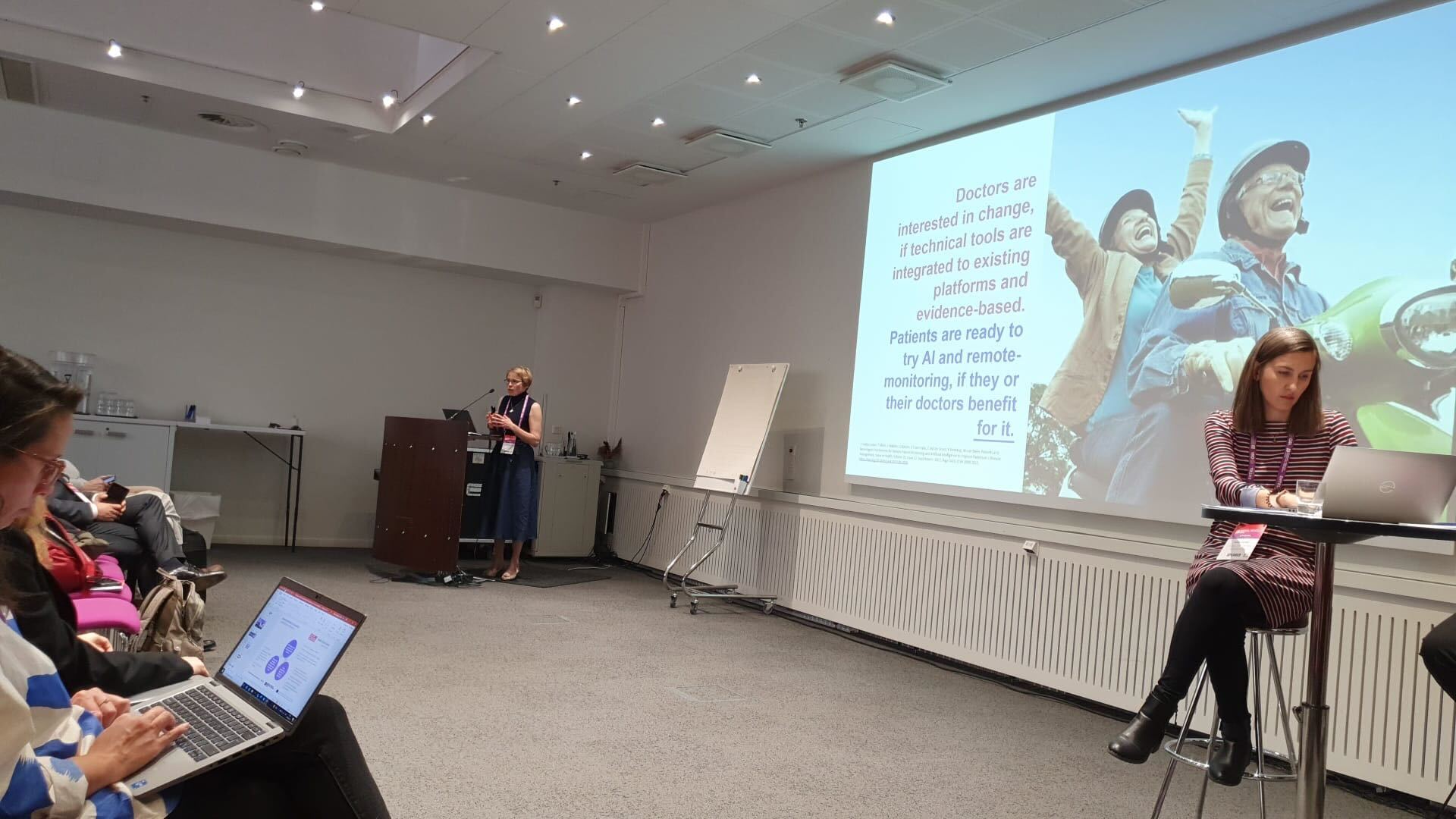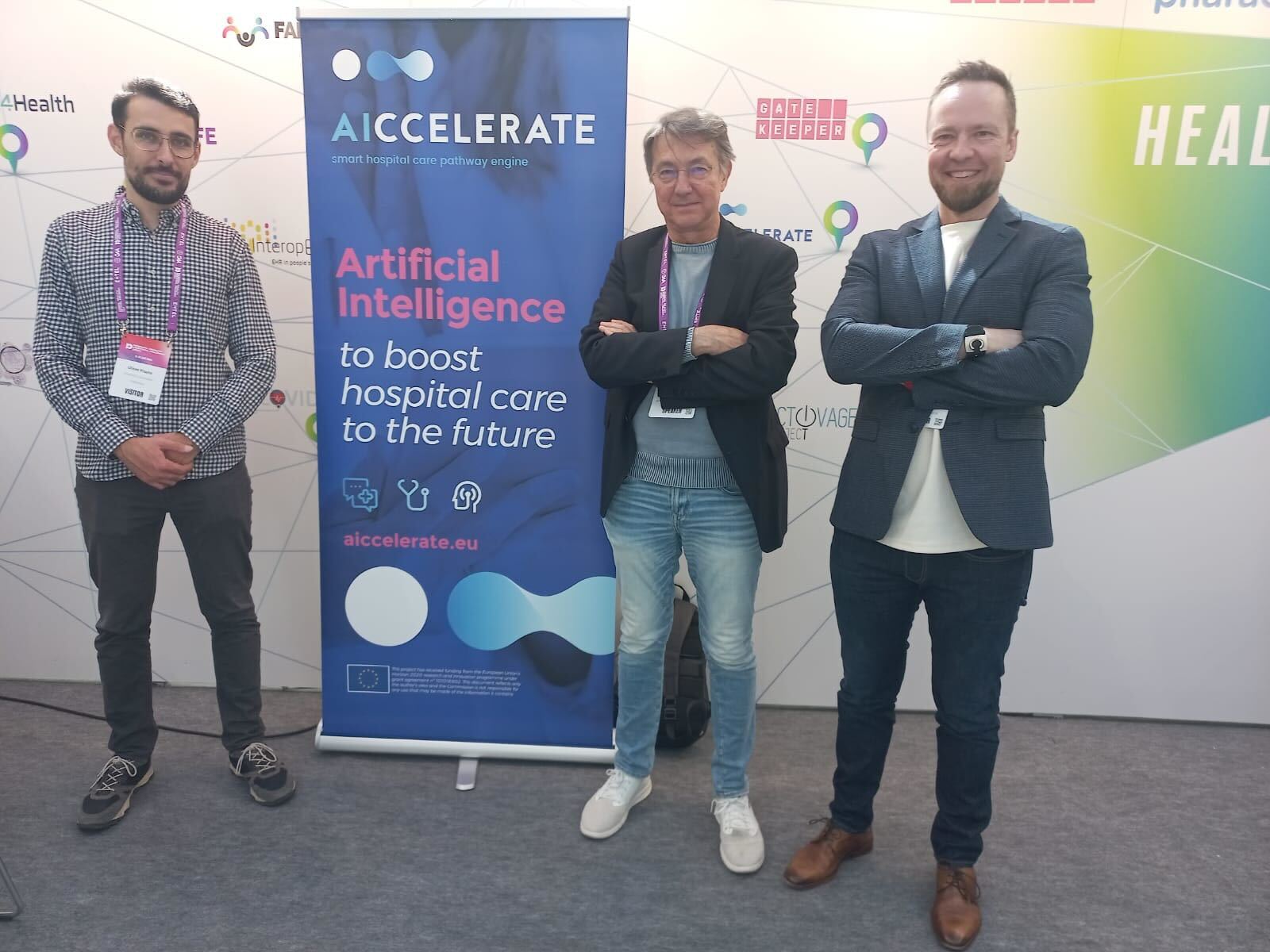News & Events
AICCELERATE at the Radical Health Festival
16 - JuneEarly this week our partners participated in the Radical Health Festival in Helsinki, during the session facilitated by EHTEL, the European Health Telematics Association, and jointly with HosmartAI and ODIN Project. The session, under the topic “Challenges and opportunities of AI deployment in hospitals”, proposed a discussion with key stakeholders about AI implementation in healthcare, the challenges that are coming up and how to approach them from their perspective.

Our partners focused the discussion on the Parkinson’s pilot implementation. Artificial Intelligence can enhance the follow-up visits for those patients by monitoring their symptoms and updates between the visits. But what does it take for doctors and patients to be interested in using AI and remote monitoring tools?
For us, the answer is twofold:
- Evidence-based technical tools integrated into existing platforms
- Clear patient benefits
In our last article we explained that although there’s currently no cure for Parkinson’s disease, there are ways that may help reduce the main symptoms and maintain quality of life for as long as possible. An AI there plays a key role in the monitoring.
The power of technology enhancing the quality and effciency comes from being a driver for a change in healthcare. Technology brings the possibility, implementation makes the change
– Laura Mäkitie

One of the main conclusions is that healthcare organizations should involve multidisciplinary teams in the design and innovation process and focus on:
- Data quality: AI models require large amounts of high-quality data to train and function effectively. However, healthcare data can be notoriously messy, incomplete, and difficult to access. This can make it challenging to develop accurate and reliable AI models.
- Patient privacy and ethical considerations: AI models often require access to sensitive patient data, raising important ethical and legal considerations around data privacy and security.
- Integration with existing systems: Many hospitals have complex legacy IT systems that can make it difficult to integrate new AI technologies. This can lead to technical challenges and delays in implementation.
- Resistance to change: Healthcare is a conservative industry, and some stakeholders may be resistant to new technologies that they perceive as a threat to their job security or the traditional way of doing things.

Similar Posts
 AICCELERATE at Medica Trade Fair 2023
AICCELERATE at Medica Trade Fair 2023
 AICCELERATE at Frontiers Health 2023
AICCELERATE at Frontiers Health 2023

